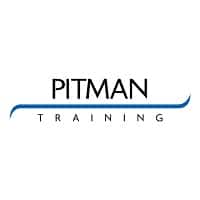Course Description
Principles, Standards and Conventions of Accounting
Pitman Training Centre (Sligo)
This course is a welcome addition to our comprehensive range of financial administration and management courses. It provides an overview of business finance and accounting – a core skill thats often in demand, particularly if youre looking for promotion, additional responsibility or to broaden your opportunities.
During the course youll explore how and why financial information is measured, as well as get to grips with assets, liability, balance sheets and other key terms. You will also receive a glossary to help you understand important financial terms.
Principles, Standards and Conventions of Accounting lasts between 8 – 15 hours and is provided in an e-learning format so you can learn at home, at a pace to suit you. Every Pitman Training Centre also has Course Advisors, so there is always additional support on hand should you feel it necessary.
What’s more, our online system will help you track your progress and take you straight back to where you left off, as well as help build your motivation. There is also a generous six-month window to complete the programme. You dont need to load software onto your computer and youll need broadband, plus Microsoft Word 97 or above (or a word-processing program fully compatible with Word).
On completing the course, you will have earned a highly regarded Pitman Training Certificate. Pitman Training certifications are widely recognised by employers throughout Ireland and the UK where we have achieved Business Superbrand status.
| College Name | Pitman Training Centre (Sligo) |
| Course Category | Accountancy, Business |
| Course Type | Blended Learning - Mix of Classroom & Online |
| Course Qualification | Level 1 Certificate |
| Course Location | Sligo, UK |
| Course Fee | POA |
| Course Duration | Full and/or part-time options: flexible training |
| Course Times | 8-15 Hours |
| Awarding Body | Pitman |
| Career Path | This course is a starting point for anyone looking to gain essential accounting understanding. Useful to get to grips with the accounting principles it's ideal if you'd like to work as an Accounts Assistant, bookkeeper, payroll assistant or take on some financial responsibilities with your current role. From here you could progress your accountancy training and look towards gaining AAT qualifications to become an Auditor, Accountant, Management |



